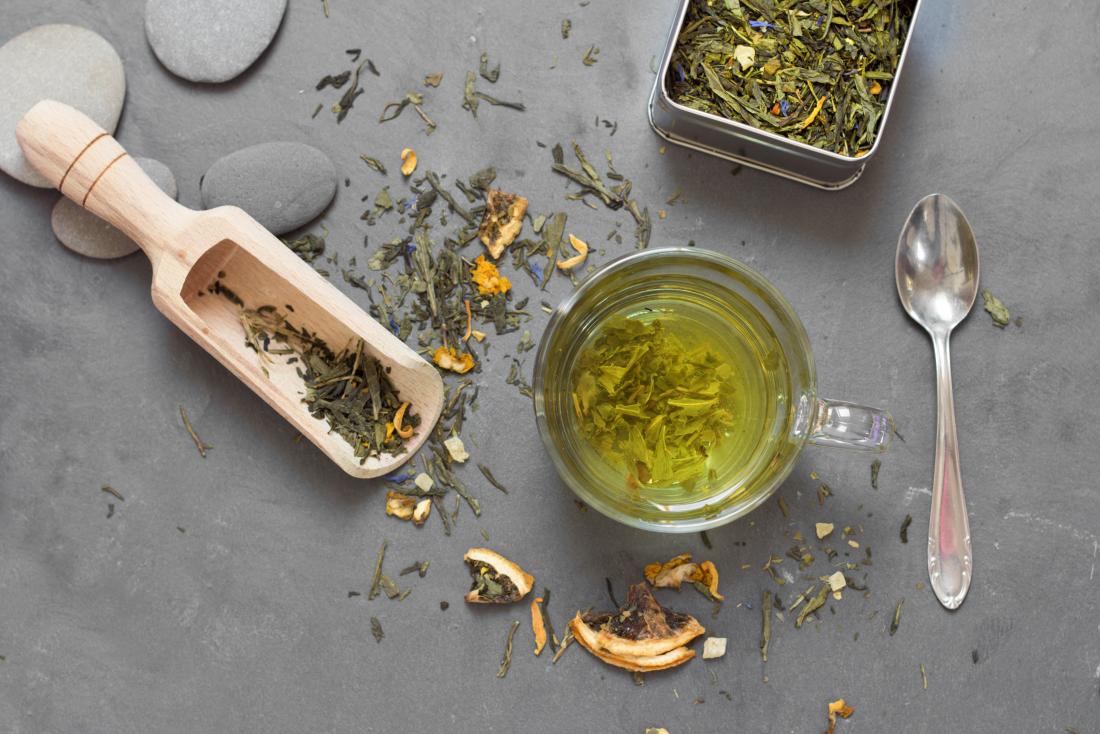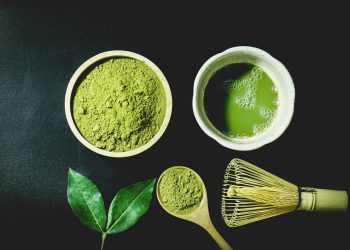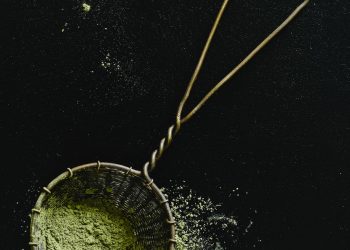Inflammation is the immune system’s response to something that could be potentially harmful to the body [1, 2].
The condition could be caused by pathogens, chemical reactions, external injuries, and even medical conditions [1].
The most common symptoms of inflammation are pain, redness, swelling, heat, and loss of function of the affected body part [1].
The good news is, there are plenty of anti-inflammatory herbs that you can use to relieve the symptoms of inflammation.
In this post you’ll learn:
- What are different types of inflammation?
- 12 herbs with anti-inflammatory properties
Different Types of Inflammation
Acute and chronic are the two types of inflammation.
Acute inflammation, which is what happens when you sprain your ankle or cut your finger, is short-term with the effects subsiding usually after a few days.
On the other hand, chronic or systemic inflammation lasts longer and is often associated with the “wear and tear” of certain body parts as in the case of rheumatoid arthritis, which affects the joints.
Here are some of the herbs that can naturally cure inflammatory diseases.
RELATED: 13 Essential Oils for Inflammation & How to Use Them
12 Anti-inflammatory Herbs & Supplements
1. Basil
Basil is a popular culinary herb that is used in many cuisines all over the world.
But, did you know that this fragrant plant is also often used in folk medicine for its many health properties?
Also known as “king of herbs,” basil comes in several varieties that include sweet basil and holy basil.
The herb has been used to treat a variety of ailments, such as acne, anxiety, and hypothyroidism.
It has even been used in the treatment of diabetes and cancer.
The effectiveness of basil against different types of health problems may be due to its powerful anti-inflammatory properties [3, 4, 5].
Things You’ll need:
- 1 cup of holy basil or Thai basil
- 1 liter of water
Recommended Directions:
- Bring the water to a boil.
- Turn off the heat before adding basil to the water.
- Allow the herb to steep for at least 30 minutes.
- Drink hot or cool throughout the day.
2. Boswellia Serrata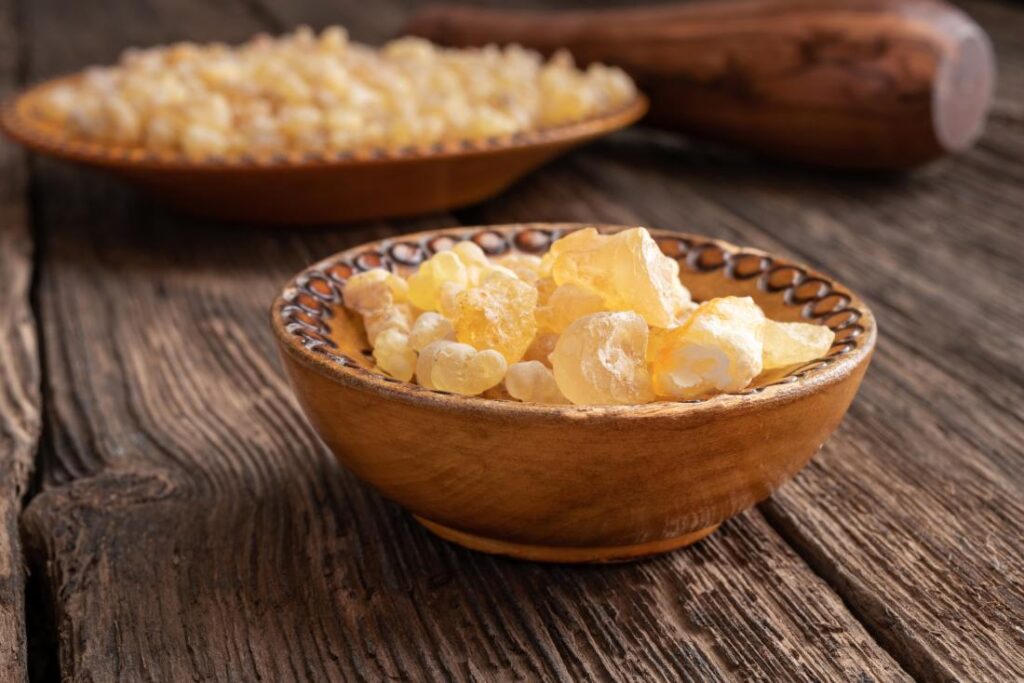
Also known as Indian frankincense, boswellia serrata is often used in folk medicine to treat asthma and to act as a painkiller [6].
However, it is most commonly used to in relieving rheumatoid arthritis, osteoarthritis, inflammatory bowel disease, and other inflammatory conditions [6,7].
In 2014, researchers from Brazil have also found that boswellia serrata has protective anti-inflammatory and antioxidant effects against experimental colitis [8].
What makes boswellia serrata effective as an anti-inflammatory is its content of boswellic acid, which prevents the formation of leukotriene in the body [9].
Leukotrienes have been linked to inflammation and even asthma [9].
Things You’ll Need:
- 1 tablespoon of frankincense
- 1 pot of water
Recommended Direction:
- Boil frankincense in a pot of water.
- Simmer for 10 minutes.
- Soak a towel into the mixture.
- Let cool a little.
- Apply warm towel on affected areas for 10 minutes.
3. Cardamom
Cardamom is one of the most popular spices in Indian cuisine.
Its pleasant aroma and flavor make the spice ideal for use in both savory and sweet dishes.
Apart from its culinary importance, cardamom also has medicinal uses, particularly in the treatment of muscle and joint pain.
A study published in the Biomedicine and Pharmacotherapy journal provides evidence of cardamom’s ability to fight inflammation as well as oxidative stress [10].
The spice has also been proven to have gastro-protective and anti-tumor effects [11, 12].
Things You’ll Need:
- 1 teaspoon of cardamom
- 1 glass of hot water
- 1/2 teaspoon of basil
Recommended Direction:
- Steep cardamom and basil in hot water.
- Strain the mixture.
- Drink the tea twice a day.
4. Cayenne Pepper
Cayenne pepper, which was originally grown in Central and South America, was brought to Europe by Christopher Columbus in the 15th century.
It is part of the nightshade family and is closely related to paprika, jalapeños, and bell peppers.
While cayenne pepper is a popular ingredient in many cuisines, its nutritional properties make it one of the best foods for overall health.
Aside from having positive effects on metabolism, blood pressure, and digestion, cayenne pepper also has anti-inflammatory properties.
Capsaicin, the compound that determines the spiciness of hot peppers like cayenne, has been found to produce anti-inflammatory as well as analgesic effects [13, 14, 15].
Things You’ll Need:
- 1 teaspoon of grated ginger
- 1 teaspoon of cayenne pepper
- 1/2 teaspoon of water
Recommended Direction:
- Mix all the ingredients.
- Apply mixture on inflamed areas of the body.
- Let sit for 1 to 2 minutes.
- Rinse well.
- Repeat twice a day.
5. Chamomile
One of the top varieties of tea available today, chamomile is great in aiding sleep and calming frayed nerves.
Chamomile may be popular as a beverage, but it can also be applied topically to relieve eczema and other types of skin irritations [16].
For many centuries, the plant, which possesses anti-inflammatory properties, has been used in treating different ailments including rheumatic pains, neuralgia, and gout [17, 18].
In fact, the German Commission E has approved the use of chamomile as an oral treatment for inflammatory issues in the gastrointestinal tract.
The same commission has also approved the topical use of chamomile for relief from inflammatory issues in the oral cavity as well as ano-genital areas [19].
Things You’ll Need:
- 1 teaspoon of chamomile flowers
- 1 glass of hot water
Recommended Direction:
- Steep chamomile in hot water for 10 minutes.
- Remove the flowers.
- Drink the tea three times a day.
RELATED: 14 Health Benefits of Chamomile Tea (Backed by Science)
6. Cinnamon
A popular flavoring in many sweets and even in savory meat dishes, cinnamon is a type of evergreen tree that belongs to the Lauraceae family.
It has antimicrobial, antioxidant, antifungal, and insecticidal properties [20].
Traditionally, cinnamon essential oil has been used to treat the common cold, fever, nausea, and diarrhea.
Cinnamon is also well-known for its anti-inflammatory properties, which have been substantiated in a number of studies [20, 21, 22].
Things You’ll Need:
- 1 teaspoon of basil
- 1 bark of cinnamon
- 1 glass of hot water
Recommended Direction:
- Add cinnamon and basil in hot water.
- Let steep for 10 to 15 minutes.
- Remove from water.
- Drink the tea two to three times a day.
RELATED: The Benefits of Honey and Cinnamon for Weight Loss
7. Clove
A native to the Maluku islands of Indonesia, clove is the bud of the flower from Syzygiumaromaticum, an evergreen tree that thrives in tropical and subtropical climates.
Clove is a rich source of nutrients, vitamins, and minerals, and has been used to improve digestion, control diabetes, cure gum diseases, and boost the immune system.
Researchers from Tunisia who studied the chemical composition and biological activity of clove found that the spice’s essential oil possesses antioxidant, antimicrobial, antifungal, antiviral, anesthetic, and anti-inflammatory properties [23].
Evidence of clove’s anti-inflammatory activity can also be seen in the results of studies published in 2015 and 2017 [24, 25].
Things You’ll Need:
- 1 teaspoon of clove
- 1 teaspoon of water
Recommended Direction:
- Mix the two ingredients until you form a paste.
- Apply on affected parts of your body.
- Rinse after 10 minutes.
- Repeat three times a week.
8. Fennel
Fennel has been used since the ancient times for its numerous health benefits like controlling the blood sugar, managing blood pressure, and preventing anemia [26].
Also referred to as Foeniculum vulgare, fennel has been found to have analgesic, antioxidant, and anti-inflammatory properties [27].
The plant’s anti-inflammatory activity works against acute and subacute inflammatory diseases [26, 28].
Things You’ll Need:
- 1 teaspoon of fennel
- 1 glass of hot water
Recommended Direction:
- Stir in fennel in hot water.
- Mix well.
- Remove fennel.
- Drink the tea once a day for one week.
9. Ginger
A flowering plant that originated from China, ginger is closely related to galangal and turmeric.
It has a long history of use as an alternative treatment for nausea, the flu, common cold, and even digestive disorders.
Gingerol, the main bioactive compound of ginger, has potent antioxidant and anti-inflammatory properties.
When compared to nonsteroidal anti-inflammatory drugs (NSAIDs), ginger is considered to be as effective, but with far fewer side effects [29, 30].
As an anti-inflammatory, ginger has been used to provide pain relief for rheumatoid arthritis and osteoarthritis [31].
Things You’ll Need:
- 1 teaspoon of grated ginger
- 1 teaspoon of olive oil
Recommended Direction:
- Blend the two ingredients.
- Spread a thin layer on the affected area.
- Massage for a few minutes.
- Rinse after three minutes.
RELATED: How To Use Ginger For Acne: 19 Effective Ways With Directions
10. Licorice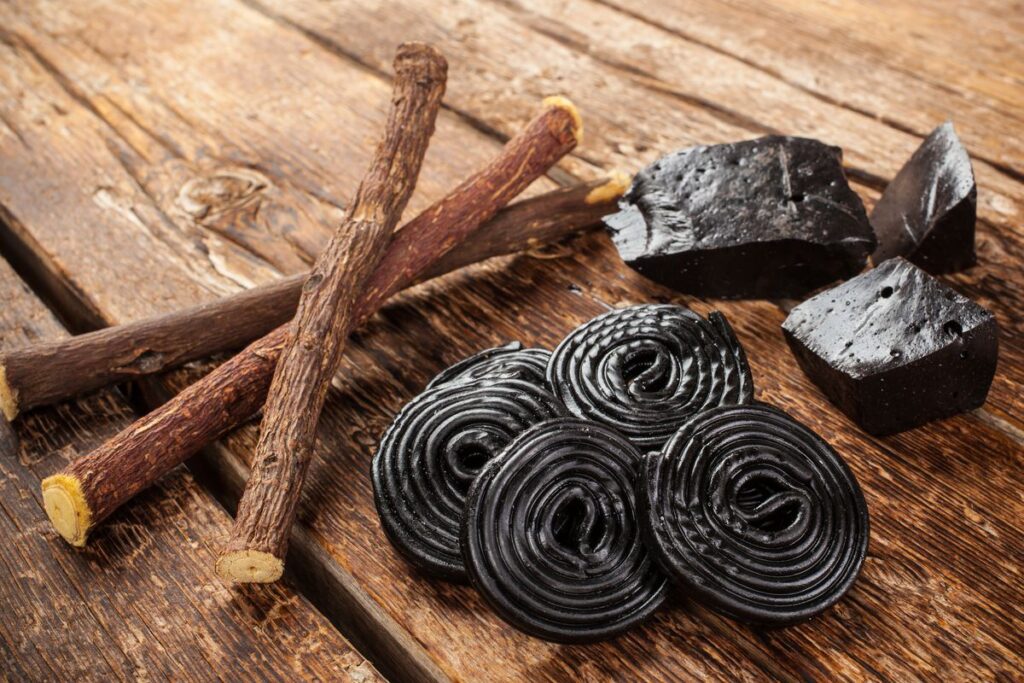
Licorice is a Mediterranean herb that has been used since the ancient times.
It has been prized for its ability to treat coughs, asthma, and gastrointestinal problems.
Licorice is also highly valued for its anti-inflammatory effects.
In fact, research done by scientists from Jordan, South Korea, and China all show that licorice has the ability to fight various types of inflammatory diseases [32, 33, 34].
Things You’ll Need:
- 1 teaspoon licorice powder
- 1 cup of hot water
Recommended Direction:
- Mix licorice powder in hot water.
- Drink the tea once a day for one week.
11. Rosemary
Rosmarinus officinalis is the scientific name of rosemary, a perennial woody herb that is native to the Mediterranean region.
Apart from giving roasts, stews, and stuffing its wonderful earthy flavor, rosemary is also known for boosting memory, relieving stomach upset, stimulating blood circulation, and improving mood.
Rosemary is also known to have powerful anti-inflammatory activity.
Research shows that extract from the herb is effective against inflammatory bowel disease as well as inflammation due to acne [35, 36].
Things You’ll Need:
- 1 teaspoon of dried rosemary
- 1 teaspoon of aloe vera gel
Recommended Direction:
- Combine rosemary and aloe vera gel.
- Spread a thin layer on inflamed parts of the body.
- Let sit for five minutes.
- Rinse with cool water.
- Repeat three times a day for one week.
12. Sage
Closely related to rosemary, sage or Salvia officinalis is an evergreen shrub with blue or purple flowers and woody stems.
The herb, which is native to the Mediterranean region, has been shown to be helpful in treating cognitive disorders, digestive issues, and skin problems [37].
The anti-inflammatory activity of sage has also been substantiated by several studies [38, 39].
Things You’ll Need:
- 1 teaspoon sage
- 1 cup hot water
Recommended Direction:
- Let sage steep in hot water for 10 minutes.
- Strain the tea.
- Drink the tea once a day until the inflammation subsides.
Bottom Line
While there is no conclusive evidence about how chronic inflammation affects the body, it has been linked to health problems such as cancer, diabetes, bone loss, cardiovascular diseases, and depression.
Chronic inflammation can also severely diminish the quality of a person’s life.
Make use of these herbs to relieve inflammation and feel better.
READ NEXT: 14 Benefits of Fenugreek for Your Health (Backed by Science)
